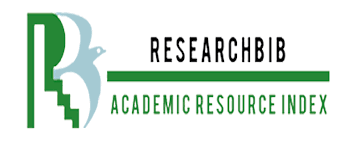The Principle of Trust in Peru as a guarantee of Constitutional roots in the actions of señior public officials
DOI:
https://doi.org/10.35622/j.rr.2023.012.006Keywords:
administración pública, derecho penal, funcionario público, imputación objetiva, responsabilidad penalAbstract
The objective of the study was to determine the applicable trust in the performance of public officials who participate in the decision-making process, as well as in cases of hierarchical relationships in the functional field. Based on the conceptual foundations studied, some guidelines will be presented on the level of diligence required of the official, which will depend, among other things, on the nature and characteristics of the position, the functions expressly assigned to the official and the nature of the relations with other officials. It is not intended to establish an axiom in this article, but rather to propose approaches and interpretations that help determine the criminal responsibility of the official in the exercise of his functions, thus excluding the responsibility of senior officials in matters of an administrative nature that must be evaluated. and authorized by the bodies responsible for their processing
References
Anarte-Borrallo, E. (2002). Causalidad e imputación objetiva en Derecho Penal. Universidad de Huelva Publicaciones.
Bacigalupo, E. (1997). Principios de Derecho Penal. Parte General (4° ed.). Editorial Akal.
Barria-Asenjo, N. A., Žižek, S., Scholten, H., Pavón-Cuellar, D., Salas, G., Ariel, O., Huanca-Arohuanca, J. W., & Aguilar, S. J. (2022). Returning to the Past to Rethink Socio-Political Antagonisms: Mapping Today’s Situation in Regards to Popular Insurrections. CLCWeb: Comparative Literature and Culture, 24(1), 1–13.
Castillo-Alva, L. (2019). Comentarios al artículo VII del Título Preliminar del Código Penal Peruano. En N. Salazar Sánchez, Comentarios al Código Penal Peruano (págs. 151-169). Gaceta Jurídica.
Feijoo-Sánchez, B. (2000). El principio de confianza como criterio normativo de imputación en el Derecho Penal: fundamento y consecuencias dogmáticas. Revista de Derecho Penal y Criminologìa -2º época-, 93-138.
Feijoo-Sánchez, B. (2002). Imputación objetiva en el Derecho Penal. Grijley.
Feijoo-Sánchez, B. (2003). Resultado lesivo e imprudencia. Estudios sobre los límites de la responsabilidad penal por imprudencia y el criterio del fin de protección de la norma de cuidado. Editorial Bosch y Universidad Externado de Colombia.
Huanca-Arohuanca, J. W. (2022a). Combate cuerpo a cuerpo para entrar a la Liga de los Dioses: Scopus y Web of Science como fin supremo. Revista Venezolana de Gerencia, 27, 663–679.
Huanca-Arohuanca, J. W. (2022b). El derecho real en contextos de pandemia: un análisis exegético a la sociedad peruana. Revista Derecho, 10, 1–16.
Huanca-Arohuanca, J. W. (2022c). Otros Dioses también respiran: Amuyawi (pensar) desde la Muchedad y el método imprecativo-contrapoder frente a la epistemología universal. Revista de Filosofía, 39(2), 67–90.
Huanca-Arohuanca, J. W. (2023). Turbulencias en el paraíso y gobierno-(sin)rumbo: Perú 2022. Revista Revoluciones, 5(11), 5–14.
Huanca-Arohuanca, J. W., Apaza-Gonzales, I. S., Moriano, J., Mamani, R., & Huarancca-Valderrama, R. A. (2021). Vale la pena respirar en un Estado de Derecho: reconocimiento de la vida como derecho humano fundamental y la aplicación normativa. DIKÉ. Revista Peruana de Derecho y Ciencia Política, 1(1), 119–127.
López-Díaz, C. (1996). Introducción a la imputación objetiva. Universidad Externado de Colombia.
Maraver-Gómez, M. (2007). El principio de confianza en el Derecho Penal: un estudio sobre la aplicación del principio de autorresponsabilidad en la teoría de la imputación objetiva. Universidad Autónoma de Madrid.
Peña-Cabrera, R., & Francia Arias, L. (1993). Delito de enriquecimiento ilícito. Ediciones jurídicas.
Reyes-Alvarado, Y. (1996). Imputación objetiva. Editorial Tecnos.
Roxin, K. (1997). Derecho Penal. Parte General. (2° ed., Vol. Tomo I). Thomson Reuters.
Villavicencio, F. (2006). Derecho Penal. Parte General. Grijley.
Published
Issue
Section
License
Copyright (c) 2023 Roosevelt Alexander Ramos-Salas

This work is licensed under a Creative Commons Attribution 4.0 International License.




















